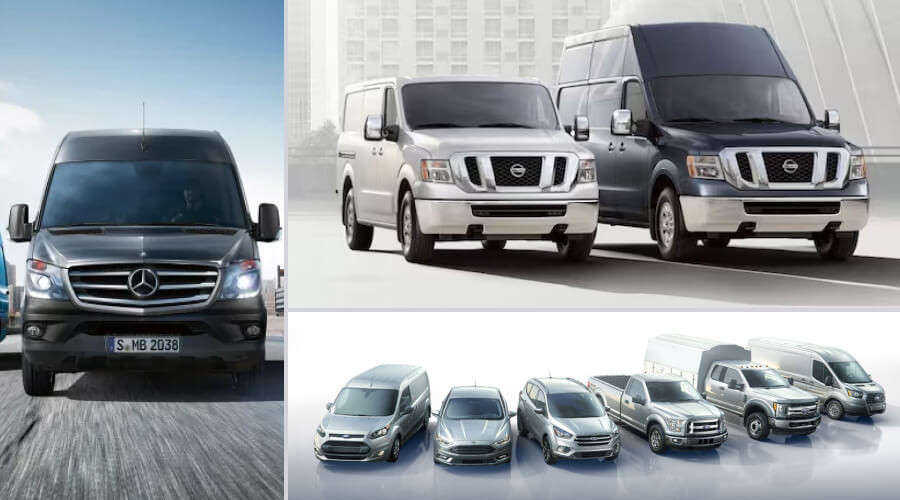You’re looking for a new fleet car for your business. You’re probably thinking you need a brand-new car right off the showroom floor to minimise your tax bill. Here’s the good news: from a tax perspective, there’s not much difference between buying new or second-hand if you’re purchasing from a dealer.
So, instead, choosing between a new and second-hand car for your business comes down to other factors, like reliability & warranty, depreciation, insurance costs, maintenance and so on. In this article, we’ll look at the pros and cons of new vs used cars for your fleet so you can make the best decision for your bottom line.
New Car Pros & Cons
Pros
Reliability and Warranty: New vehicles come with the latest technology, ensuring better fuel efficiency and safety features. They also come with a manufacturer’s warranty, which can reduce maintenance costs in the early years.
Tax Benefits: Under the instant asset write-off scheme, businesses can immediately deduct the cost of new vehicles up to a certain limit, currently $150,000, provided the vehicle is acquired and first used or installed ready for use by the end of the relevant income year. Note: for cars that carry less than a tonne or seat fewer than nine people, the effective dollar limit is $57,581.
GST Credits: When purchasing a new vehicle, businesses can claim a GST credit for the GST included in the purchase price.
Cons
Depreciation: New vehicles lose value quickly, with the most significant depreciation occurring within the first few years.
Higher Purchase Cost: The initial cost of new vehicles is higher compared to second-hand options, which can impact cash flow.
Insurance Costs: Comprehensive insurance for new vehicles tends to be more expensive.
Second-Hand Car Pros & Cons
Pros
Lower Purchase Price: Second-hand vehicles are generally cheaper, which can ease the burden on your business’s cash flow.
Slower Depreciation: Since second-hand vehicles have already undergone significant depreciation, their value tends to stabilise, resulting in a better resale value.
Tax and GST Benefits: Similar to new vehicles, second-hand vehicles are also eligible for the instant asset write-off scheme, provided they meet the criteria. Additionally, GST credits can be claimed on the purchase of second-hand vehicles from a GST-registered entity.
Cons
Higher Maintenance Costs: Older vehicles may require more frequent repairs and maintenance, leading to higher long-term costs.
Limited Warranty: Second-hand vehicles may not come with a warranty, or the warranty might be limited, exposing your business to potential repair costs.
Financing Challenges: Securing financing for second-hand vehicles can sometimes be more difficult, and the interest rates might be higher.
New or Used? It’s Up to Your Business
Deciding between a new or second-hand vehicle for your business depends on your specific needs, budget, and long-term financial strategy. New vehicles offer reliability, the latest technology, and tax benefits, but come with a higher purchase price and rapid depreciation.
Second-hand vehicles also come with tax benefits, and provide a more affordable option with slower depreciation. However, they may have higher maintenance costs and limited warranty.
However, just be aware of how the car is being used. You only get a full tax deduction if the car is used only for business purposes, so you need to be careful about documenting private use versus business use.
At the end of the day, think about your business’s cash flow, the intended use of the vehicle, and the available tax benefits when making your decision. Consulting with a financial advisor or tax professional can also provide tailored advice to help you choose the best option for your business.
Fleet Car FAQs
Can I claim a tax deduction for buying a car for business use in Australia?
Yes, you can claim a tax deduction for buying a car for business use in Australia. The instant asset write-off scheme allows businesses to immediately deduct the cost of eligible new and second-hand vehicles up to a certain limit.
What are the tax benefits of buying a new car versus a used car for business?
Buying a new car for your business can offer benefits like the latest technology, manufacturer’s warranty, and potentially lower maintenance costs. Both new and used cars are eligible for the instant asset write-off, allowing you to claim an immediate tax deduction up to the limit.
Do I have to pay Fringe Benefits Tax (FBT) on a company car in Australia?
Yes, if you provide a company car to an employee for their private use, you generally have to pay Fringe Benefits Tax (FBT). Private use includes any travel by the employee that is not for work purposes, such as commuting from home to work.





